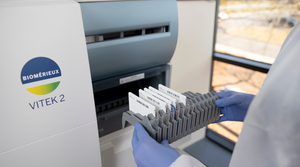
Solesis, the parent company of Secant Group, recently announced it has acquired Polyzen, a developer and manufacturer of polymer-based film and coating technologies for the medical device and biopharmaceutical industries. Solesis said that the addition of the company will expand its design and manufacturing capabilities in advanced biomaterials and broaden service offerings to customers.
“We are thrilled about what this new partnership will mean for our customers going forward,” said Karen West, CEO of Solesis. “Polyzen enhances Solesis’ breadth of polymer-based technologies, know-how, and capabilities, all of which will enable us to continue to provide innovative solutions to our customers.”
Nikin and Rubin Shah, Co-CEOs of Polysen, continued, “We are excited to combine our decades of polymer science experience in film and coating technologies with Solesis’ market leadership in advanced biomaterials. As part of Solesis, we look forward to innovating and developing polymer technology solutions to support our global medical device and bioprocessing customers.”
Polyzen will continue operations in Apex, NC, as a subsidiary of Solesis.
This acquisition continues the growing trend of supplier consolidation and M&A over the past months. In November alone, there have been more than one announcement of supplier acquisition in the medtech industry. One such M&A, which MD-DI reported on only last week, showed Trelleborg Group’s agreement to acquire Minnesota Rubber & Plastic.
Notabily, OEMs seem to have taken the opposite approach. This year, multiple major companies have announced the spinoffs of internal business units into standalone companies. In March, InnoSIGN completed its separation from Philips. Additionally, July saw 3M separate from its healthcare unit and, in October, Medtronic parted ways with its patient monitoring and respiratory interventions businesses.
For now, questions remain on how these trends will affect the medtech industry.
About the Author(s)
You May Also Like



